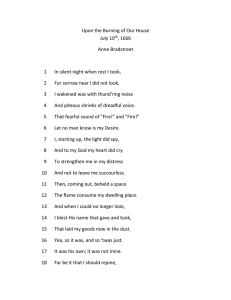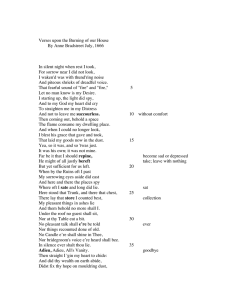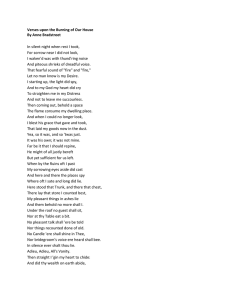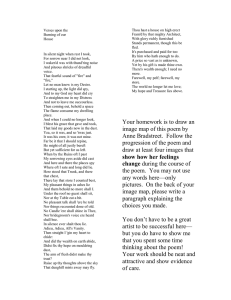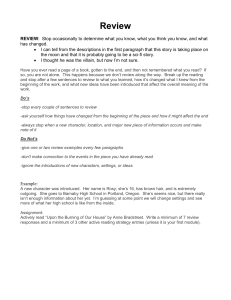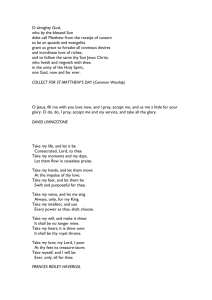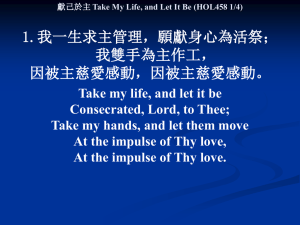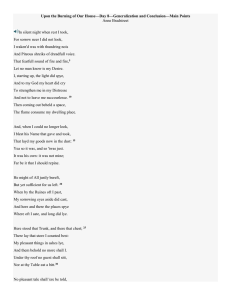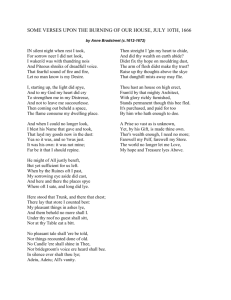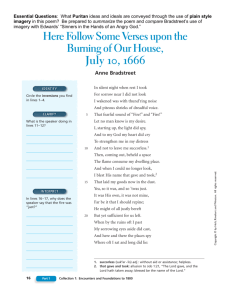Bradstreet poems
advertisement
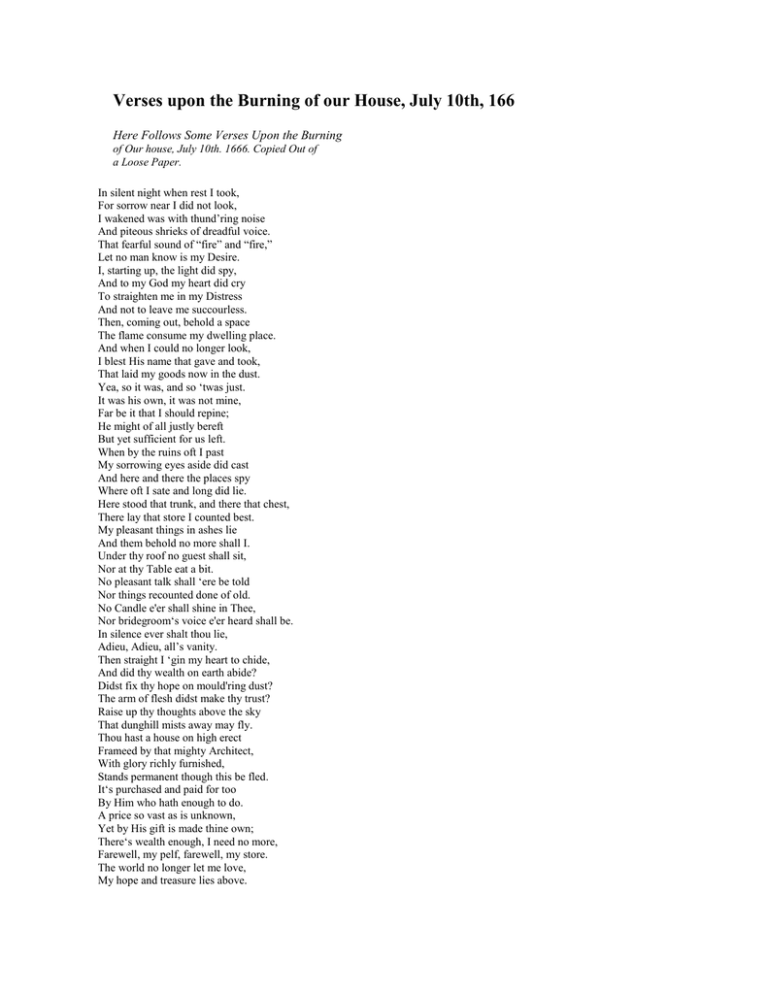
Verses upon the Burning of our House, July 10th, 166 Here Follows Some Verses Upon the Burning of Our house, July 10th. 1666. Copied Out of a Loose Paper. In silent night when rest I took, For sorrow near I did not look, I wakened was with thund’ring noise And piteous shrieks of dreadful voice. That fearful sound of “fire” and “fire,” Let no man know is my Desire. I, starting up, the light did spy, And to my God my heart did cry To straighten me in my Distress And not to leave me succourless. Then, coming out, behold a space The flame consume my dwelling place. And when I could no longer look, I blest His name that gave and took, That laid my goods now in the dust. Yea, so it was, and so ‘twas just. It was his own, it was not mine, Far be it that I should repine; He might of all justly bereft But yet sufficient for us left. When by the ruins oft I past My sorrowing eyes aside did cast And here and there the places spy Where oft I sate and long did lie. Here stood that trunk, and there that chest, There lay that store I counted best. My pleasant things in ashes lie And them behold no more shall I. Under thy roof no guest shall sit, Nor at thy Table eat a bit. No pleasant talk shall ‘ere be told Nor things recounted done of old. No Candle e'er shall shine in Thee, Nor bridegroom‘s voice e'er heard shall be. In silence ever shalt thou lie, Adieu, Adieu, all’s vanity. Then straight I ‘gin my heart to chide, And did thy wealth on earth abide? Didst fix thy hope on mould'ring dust? The arm of flesh didst make thy trust? Raise up thy thoughts above the sky That dunghill mists away may fly. Thou hast a house on high erect Frameed by that mighty Architect, With glory richly furnished, Stands permanent though this be fled. It‘s purchased and paid for too By Him who hath enough to do. A price so vast as is unknown, Yet by His gift is made thine own; There‘s wealth enough, I need no more, Farewell, my pelf, farewell, my store. The world no longer let me love, My hope and treasure lies above. To My Dear and Loving Husband by Anne Bradstreet If ever two were one, then surely we. If ever man were loved by wife, then thee; If ever wife was happy in a man, Compare with me ye women if you can. I prize thy love more than whole mines of gold, Or all the riches that the East doth hold. My love is such that rivers cannot quench, Nor ought but love from thee give recompense. Thy love is such I can no way repay; The heavens reward thee manifold, I pray. Then while we live, in love let's so persever, That when we live no more we may live ever.
